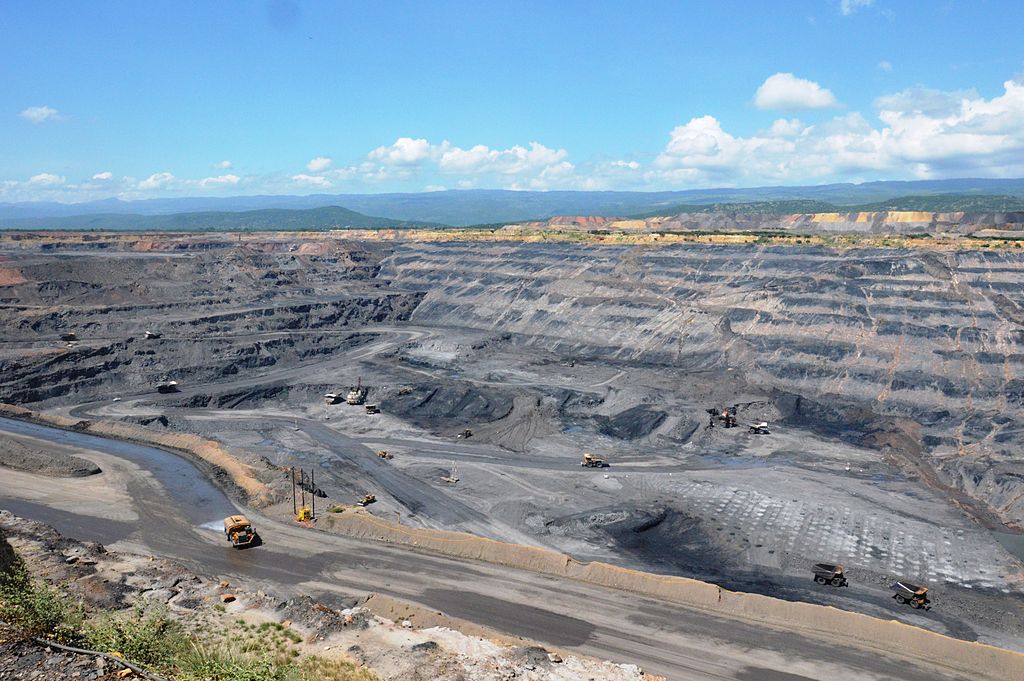Representing the Libertarian Movement, a budding organization trying to make inroads in Colombian politics, 25-year-old María Alejandra Londoño traveled halfway around the world to speak about a revolutionary idea: subsoil privatization. During the 2019 Liberty International World Conference in Mongolia, she argued Colombia and other Latin-American nations should radically alter underground property rights.
We interviewed María Alejandra to discuss how her proposal can both increase prosperity and reduce political meddling in the economy.
How did you become an advocate of economic freedom and subsoil privatization?
I learned about the ideas of liberty when I was studying for a B.A. in Finance at the Sergio Arboleda University in Colombia. There, an economics professor asked us to read Hayek and Marx. I became intrigued by the Austrian school of economics. As a result, I devoted myself to deepening my knowledge of those ideas during the rest of my undergraduate studies. With my peers, I organized a seminar, and then I decided to make subsoil privatization my dissertation topic.

María Alejandra Londoño. (Alejandra Research)
I also joined the Libertarian Movement and started collaborating with its members by hosting a podcast—called La Boa—and producing educational videos on libertarian principles. At the same time, I launched a personal project called Fintech Era, where I wrote about financial blockchain applications. This eventually turned into Alejandra Research, a blog where I comment on free markets and technology as they relate to national and international events.
Over a year ago, I became the Libertarian Movement’s national director. In this capacity, I have been able to arrange international alliances to promote the ideas of liberty in Colombia and elsewhere in Latin America. In 2019, I attended the Liberty International World Conference in Mongolia, where I had the chance to speak on subsoil privatization as a way to reduce the size of governments.
How does natural-resource dependency affect a country’s institutions and development?
This phenomenon is commonly known as the Dutch disease and is a barrier to development. Politicians seeking to get elected prop up national extractive industries that generate large short-run yields. The Keynesian model, in which the state takes on a large role in a country’s economic development, leaves little room for private innovation—the actual driver of prosperity.
Dependency on natural resources is a double-edged sword. Government officials fill their pockets with royalties from extractive industries that they use to buy the opposition and prolong their rule. The best contemporary example is Venezuela.
In the same vein, legal rigidity and red tape inhibit innovation. The domestic extractive industries do not expand beyond raw-material production and export. However, nowadays economic development requires letting the private sector explore new opportunities. Government monopoly over natural resources sacrifices development and prosperity for centralization.
What has been your experience advocating for subsoil privatization in Colombia?
It is a relatively new topic in Colombia. It has only been discussed in universities, and even academic debates tread lightly, treating subsoil privatization as just a theoretical exercise. Suggesting the elimination of the government’s monopoly over the subsoil is still taboo. People believe minerals and other underground resources are key to a nation’s sustainability and, sadly, refuse to consider privatizing them.
The belief that governments are all-powerful and that bureaucrats know better what to do with natural resources is very entrenched in Latin America. Most of the region’s extractive models currently in operation hark back to the colonial era from centuries ago. Old habits do not change overnight. Free-market ideas are not welcome in many Latin-American political and social circles.
The vast majority of Latin Americans perceive subsoil privatization as too radical. Therefore, advocates need to start fostering the discussion in as many spheres as possible. Academic research is not enough. Before we can introduce successful resource-management models, we need a presence in the media and in public discussions to lay down the foundation of free enterprise.
The economic systems Latin America has adopted during the last 100 years are completely obsolete. We live in the information age, and many paradigms are crumbling; we must get on that train.
How should subsoil privatization be implemented to get effective outcomes?
Although this is mainly the domain of entrepreneurs, legal reform is the first item on the list. Three articles in the Colombian Constitution grant the government the ownership of the subsoil and regulate its exploration. Therefore, the first step is a constitutional change to define the subsoil as a private good.
The second step is setting up efficient property-rights enforcement and regulatory frameworks to foster investment and trade. In other words, it is necessary to remove political bodies such as ministries and other government agencies that currently keep a tight grip on the extractive industries. Finally, privatizing public companies like Ecopetrol would allow for more efficient resource management.
Although we can identify three implementation stages, we do not know what entrepreneurs will come up with in the future. As we have seen before, innovation inevitably requires legislative adaptation. The longer the governments take to perform these changes, the greater the shock to the regional economies and to human well being.
How did you get interested in subsoil privatization and what outcomes do you expect in the future?
As I learned about Austrian economics, I wondered why universities rarely touched upon these ideas. They offer a window into the future and are extremely innovative, compared to what we usually hear in class.
The oil industry had always caught my attention since it is so rigid but so crucial to the Colombian economy. Therefore, I identified a disruptive policy proposal worth exploring and promoting. We might think traditional industries offer little room for changes, but the truth is we have not realized their huge potential, mainly because of regulatory burdens.
My long-term expectations are to open new venues for entrepreneurs as a result of promoting the ideas of liberty. I would like to keep transmitting the message that we can only become prosperous through free and private endeavors and by encouraging people to look at the world with new eyes.
In the 21st-century, businessmen should be at the fore, not governments and politicians. Subsoil privatization in Latin America definitely provides plenty of opportunities for entrepreneurs to shine.




